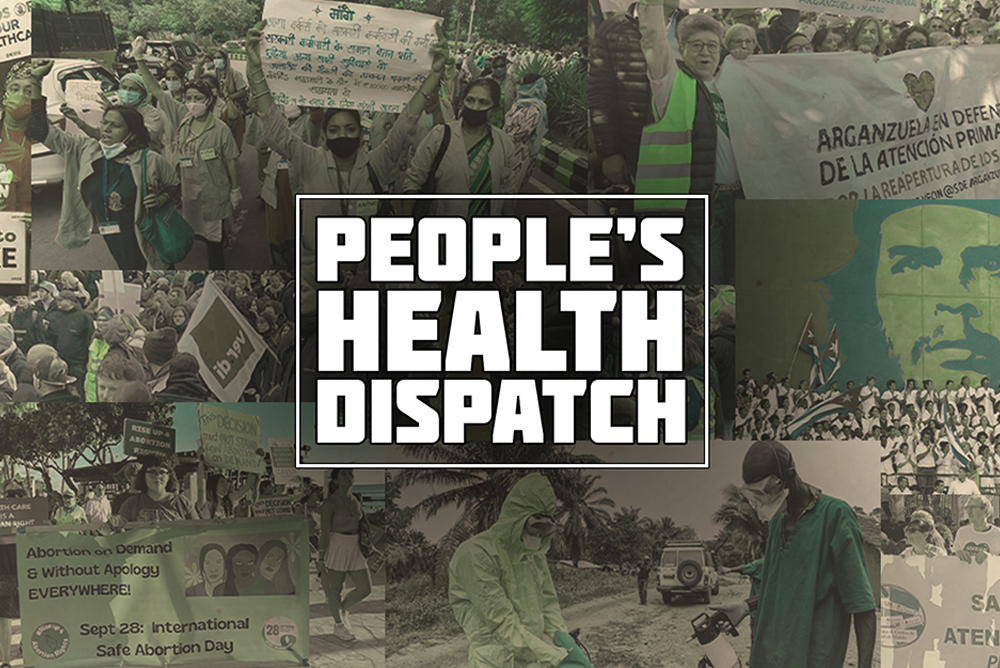People's Health Dispatch: What’s next for the WHO after the Pandemic Treaty?
This fortnight at the People's Health Dispatch
After more than three years of negotiations, member states of the World Health Organization (WHO) have endorsed the Pandemic Treaty. However, many key issues remain unresolved, particularly around equitable sharing mechanisms and access guarantees raised by countries in the Global South. The WHO is also facing a period of turbulence, marked by the absence of the United States from discussions for the first time in decades and looming financial issues. The WHO Watch team from the People’s Health Movement (PHM) was on the ground at the 78th World Health Assembly, monitoring debates and sharing critical briefings.
One recurring item on the World Health Assembly agenda is the health situation in the occupied Palestinian territories. This year, against the backdrop of Israel’s ongoing genocide in Gaza, the WHO once again reported alarming conditions in Palestine. Solidarity statements and urgent demands came from low- and middle-income countries, while high-income states once again refused to break ranks with Israel.
In the Global North, medical research institutions stand at a crossroads in cancer therapy: yet the possibility of delivering innovative, accessible, and life-saving care is being obstructed by the influence of Big Pharma and the dominance of a market-driven framework.
Barriers to essential medicines are also growing in India, often described as the pharmacy of the world. Jyotsna Singh spoke with Chetali Rao of Third World Network to uncover the true cost of producing life-saving drugs – and the markups that keep them out of reach for many.
Meanwhile, in Britain, new policing guidelines advising investigations into women after sudden pregnancy loss have sparked mass outrage. Activists and health professionals are calling for a full decriminalization of abortion across the country and demanding an end to decades of intimidation targeting both providers and those seeking essential reproductive care.
Featured articles
The 78th World Health Assembly and the future of global health
The WHO convenes amid rising emergencies, funding cuts, and geopolitical tensions, meaning this year’s World Health Assembly faces a key test: can global health cooperation outpace converging crises?

Global South reiterates support for Palestine at World Health Assembly
At the 78th World Health Assembly, Palestinian representatives called on member states to halt arms deliveries to Israel and review ties with the occupying power

Against the normalization of limited access to CAR-T cell therapies
European hospitals and research centers have a chance to make CAR-T cancer therapies more accessible — the question is whether they’ll take it

Outrage in UK over police guidelines on monitoring women after pregnancy loss
Police guidelines suggesting home searches and digital checks for women who experience pregnancy loss have sparked uproar in Britain

Video: India’s medicine crisis: Unpacking the price tag
India is often called the Pharmacy of the World. Its generic medicines save lives not just at home, but across the globe, in both developing and developed countries. So why are medicine prices in India skyrocketing?


